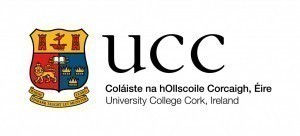24 January 2017
By Tom Collins
tom@TheCork.ie
Hippocrates said “Led food be thy medicine” and efforts are increasing to develop dietary strategies to target stress-related disorders such as depression and anxiety.
There is growing evidence that microbes in the gut can play a key role in regulating brain functions, particularly emotional processing and behaviour. Prebiotics are non-digestible food ingredients that promote the growth of beneficial microorganisms in the intestines. Two such prebiotics, similar to those naturally found in breast milk and some vegetables, are the soluble fibres fructo- (FOS) and galacto-oligosaccharides (GOS).
A group of scientists from the Science Foundation Ireland-funded APC Microbiome Institute has shown that a combination of these two prebiotics in particular, could modulate anxiety, cognition and stress-related behaviors in healthy mice. The research also shows that these prebiotics modified specific gene expression in key brain regions. FOS/GOS treatment also reduced chronic stress-induced elevations in stress hormones and immune factors in addition to stress-induced depressive-like and anxiety-like behavior.
Taken together, these data strongly suggest a beneficial role of prebiotic treatment for stress-related behaviours. These findings strengthen the evidence base supporting therapeutic targeting of the gut microbiota for brain-gut axis disorders, offering new avenues in the field of nutritional psychiatry.
“This opens up a very exciting dietary approach in to counter the effects of stress” says Prof. John F. Cryan who led the study along with Prof Ted. Dinan. “If such robust findings could be translated to humans we may have a whole new “psychobiotic” way of managing stress-related disorders such as depression and anxiety disorders” Cryan says.
This APC Microbiome Institute research, which has just been accepted for publication in the high impact factor journal Biological Psychiatry, was conducted at University College Cork by Drs. Aurelijus Burokas, Rachel D. Moloney, Gerard Clarke and Veronica L Peterson and at Teagasc Moorepark by Prof Catherine Stanton, Drs Silvia Arboleya and Kiera Murphy.
About the APC Microbiome Institute
The APC Microbiome Institute (APC; http://apc.ucc.ie) was formed in 2003 with funding from Science Foundation Ireland and in conjunction with key industry partners. It represents a seamless collaboration between University College Cork, Teagasc (the Irish Agriculture and Food Development Authority) and Cork Institute of Technology. It is widely recognised that the gut microbiota plays an important role in human health and has become one of the most dynamic, complex and exciting areas of research in both food and pharmaceutical arenas. Over the last decade the APC has established itself as one of the leading global centres in gut microbiota research. The APC has made several landmark discoveries and has published over 1000 research articles in peer-reviewed journals, generating many journal covers and associated editorials. The APC comprises over 300 individuals, from the scientific PI’s (the APC Faculty) funded by the partner Institutions, the management team, and a dedicated group of research scientists, research assistants and postgraduates students.
About Biological Psychiatry
Biological Psychiatry is the official journal of the Society of Biological Psychiatry, whose purpose is to promote excellence in scientific research and education in fields that investigate the nature, causes, mechanisms and treatments of disorders of thought, emotion, or behavior. In accord with this mission, this peer-reviewed, rapid-publication, international journal publishes both basic and clinical contributions from all disciplines and research areas relevant to the pathophysiology and treatment of major psychiatric disorders.



